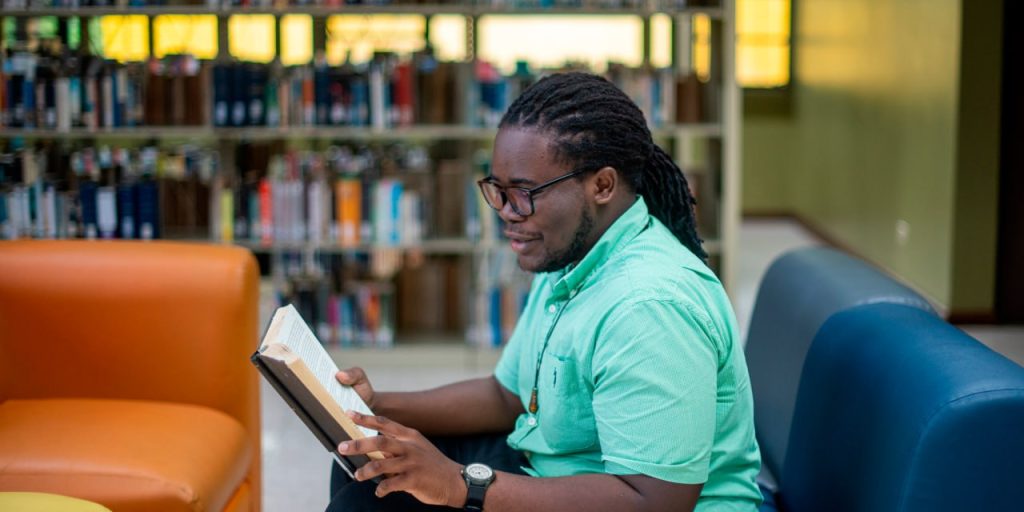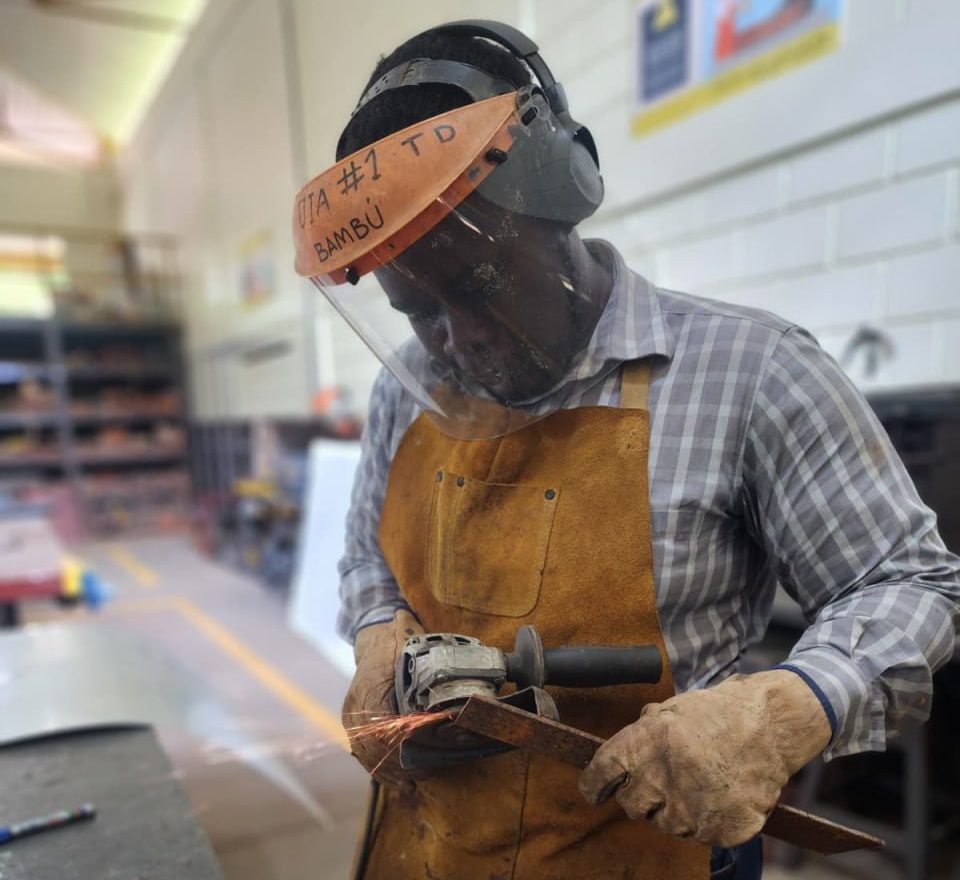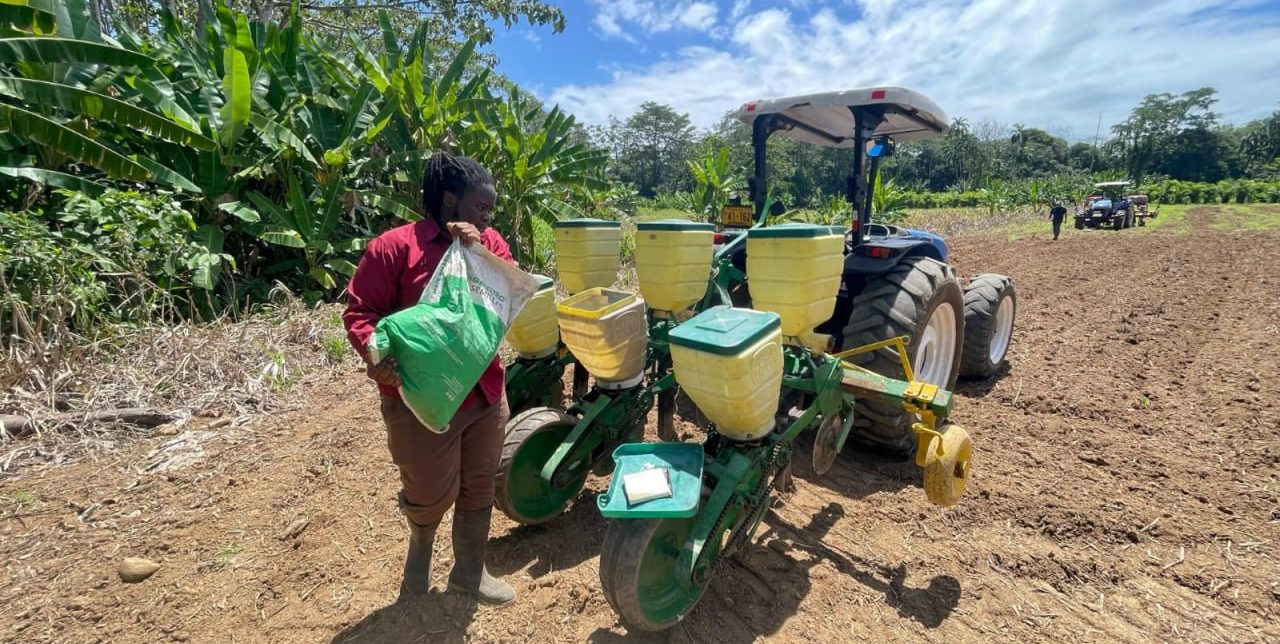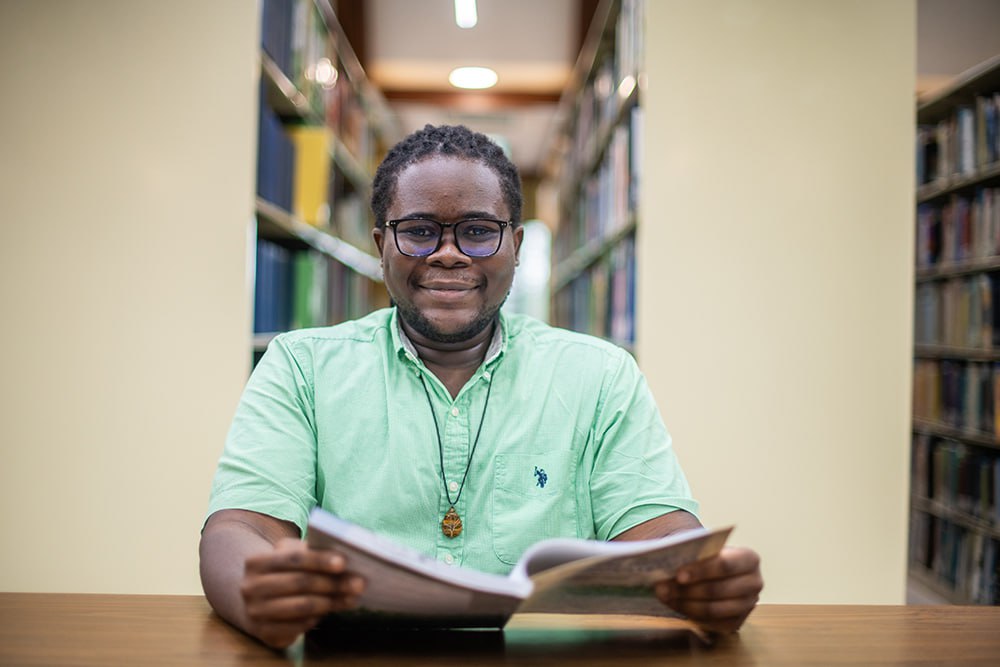Veonn Caines (Class of 2025) says that in his home country of Saint Kitts and Nevis, very few young
people want to pursue agriculture. In this small Caribbean nation—the smallest
country in the Americas—the agricultural sector represents less than 1.5% of
the Gross Domestic Product (GDP). “Almost everything we eat is imported,”
Veonn explains. But he adds that although the country is small, its soil is
fertile. He remembers his grandmother growing different crops around her house
and raising sheep. Since he was young, she showed him where the food on their
table came from.
As Veonn grew up he watched the hotel infrastructure expand, with cruise ships arriving at the paradisiacal beaches of the two islands that make up the country and young people dreaming of leaving to build a better future elsewhere. Despite all this, he knew early on that he wanted to dedicate himself to agriculture. In high school, he had to choose a specialization. Out of 100 students, only he and three others chose agriculture. When it came time to select a university major, he was persuaded to study electrical engineering and completed two years, until he learned about EARTH and decided to pursue the path he had always dreamed of. Veonn is now about to graduate as an Agricultural Engineer and dreams of leading projects that can transform the food systems of his country.

For his Graduation Project (GP), Veonn combined his knowledge of electrical engineering with precision agriculture. With support from his advisors, he chose to focus on a research study involving agricultural machinery, soil compaction, and climate. He took advantage of the University’s investment in a new pneumatic planter and learned how to calibrate it to carry out the study. In front of him stretched a vast, unexplored field. The project’s objective was to compare corn germination using two technologies: the pneumatic planter and a conventional planter. He analyzed factors such as soil texture, moisture, machine pressure, and planting speed. In total, 12 treatments were conducted across three blocks and divided into two cycles: one with low soil moisture and another with high soil moisture.
His greatest challenge was the weather. “You can’t plant when the soil is too saturated,” he explains. Heavy rain delayed the process for weeks, because the machine could not enter the field without affecting crop establishment. Veonn had to wait, reorganize, remeasure, adjust schedules, and learn to be patient. Once in the field, the volume of data was massive. “I couldn’t do it alone,” he admits. He requested support from students—especially those in the Work Experience course—and guided them in measuring plants, recording variables, and understanding what each treatment meant.

Among his findings, he discovered that under his soil conditions, using the pneumatic planter with increased pressure produced a more uniform planting depth, reduced mechanical damage, and resulted in more stable germination—an overall superior performance that would translate into higher crop productivity. In soils with low moisture, plants reached greater heights, while in high moisture soils they developed thicker stems and a higher plant population per acre. Overall, the new machine proved more efficient and better suited to the conditions of the humid tropics. In Veonn’s words: “Some people think you just pass the machine through the field and that’s it, but many factors determine whether the investment is worth it.” His study provides valuable information for producers seeking to improve yields, reduce losses, and make better decisions about resource use.

Throughout his research, Veonn kept thinking about his country, where agriculture is undervalued and dependence on imports exceeds 80%. He wants to be part of the change. He wants more young people to take on leadership roles in agriculture and to discover that the field is also a space for technology, innovation, and science. He dreams of returning to Nevis to continue applying precision agriculture and to develop a sustainable aquaponics system that generates jobs, produces local food, and reduces pressure on marine ecosystems affected by climate change.
Just weeks away from graduating, he now sees himself as a confident professional, capable of integrating his technical skills with a firm conviction: agriculture can still transform his community, and he wants to help drive that change.

